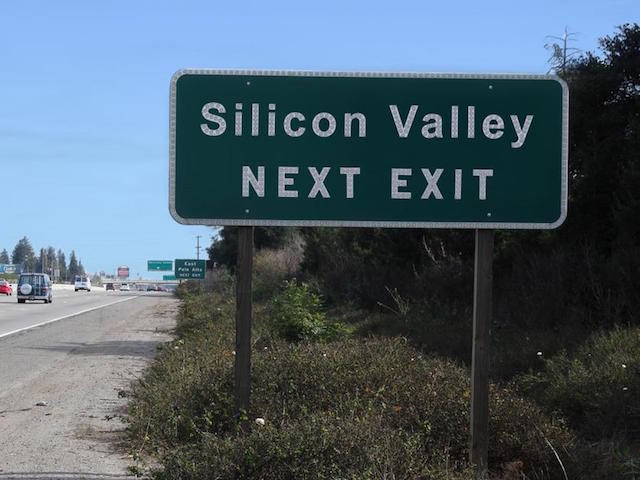Ask a startup CEO what the most important thing at his company is, and you’re likely to hear something about the “company culture” — a unique blend of values and workplace norms that give startups their unique vibe.
It’s something that tech companies are very proud of, particularly in Silicon Valley. Not for them the neckties, cubicles and white desks found in less imaginative industries. These guys have plaid shirts, beanbags and ping-pong tables for employees and relaxed, Millennial-friendly attitudes to working hours.
Valley startups understand the importance of culture to an organisation’s success. Indeed, tech companies take company cultures so far that they turn into borderline cults.
Some would argue that a company’s culture is even more important than the skills and experience of senior hires. Indeed, it’s now accepted practice for potential employees to be rejected because hiring managers don’t think they’d be a “good fit” in the company’s atmosphere.
Which of course makes sense. Different companies work differently and no one culture is the perfect fit for every startup. Google can’t work like Zappos does; Amazon can’t work like Twitter; Facebook can’t work like Apple.
Every startup CEO knows this and takes pride in his company’s distinctiveness. Many believe that it is precisely their company culture that affords them a competitive edge.
CEOs often hire a small percentage of “bad fits” on purpose, in order to avoid groupthink in long-established teams — say, 2.5 to 5 per cent. But any more than that starts tearing the company apart, causing it to lose its edge and flavour.
To put it another way: Silicon Valley companies are stopping people at the door because their values and behaviours don’t mesh with the culture inside and might have negative outcomes for the people working there already.
You see where I’m going with all this.
San Francisco, perhaps the place on earth most sensitive to the potential — and fragility — of subcultures, unique working environments and carefully nurtured social attitudes, is perhaps the locus of opposition to Donald Trump and the most powerful centre of resistance to strong borders. It’s illogical and hypocritical.
Silicon Valley refuses to acknowledge that the same processes at play in their companies — which often comprise of thousands of employees — are also at play in nations, societies, and local communities. The history, values and norms of a people give a culture its unique qualities.
Flood villages, cities or countries with outsiders who don’t share them, and that culture disappears and whatever it was that made that culture unique dies too.
And let’s be clear. Some of the people coming into Europe and America really don’t share our values. Western culture, for example, does not endorse the oppression of women, the murder of apostates or the execution of homosexuals. It does not endorse the death penalty for “blasphemers” or violence and discrimination against nonbelievers.
Too often, radical Muslim cultures do. Yet according to Facebook’s Mark Zuckerberg, who presides over one of the most culture-obsessed companies in Silicon Valley, we should “follow the lead” of Germany and open our borders to millions of intolerant, sexist homophobes from non-western countries.
For Silicon Valley companies, “growth phases” of high-volume hiring can be perilous. Recruiters ideally want to thoroughly vet each employee to ensure they can fit in with the culture. They can’t just open the floodgates and hope for the best.
Despite Muslims being happy in the west, there is evidence in Britain at least that their social attitudes are not adapting – especially to homosexuality. For example, a Gallup poll of Muslims in the UK found that not a single Muslim in the 1,001 people polled thought that homosexuality was morally acceptable. That is compared to 58 per cent of the overall British population who think we fags are alright. The same poll found that just 35 per cent of French Muslims and 19 per cent of German Muslims thought homosexuals were morally acceptable.
According to a Channel 4 poll, 52 per cent of British Muslims believe homosexuality should be illegal, 23 per cent would like to see Sharia law in England, 39 per cent believe a woman should always obey her husband, as opposed to 5 per cent of English people overall, and 31 per cent consider it acceptable for a man to have multiple wives.
Imagine if the same thing were to be asked of a Silicon Valley company. Would a Bay Area startup really want to hire someone who believes homosexuality should be illegal? Mozilla got rid of Brendan Eich just for having the wrong opinion about gay marriage!
Silicon Valley companies are broadly right to value their cultures, even if they do quite often wander into wacky social justice territory. That’s why it’s time to apply the same logic at our national borders that the tech companies apply at their recruiting departments.
Of course, when we’re talking about national borders it’s even more critical to get this stuff right. Facebook and twitter might hire some bad fits to avoid groupthink (though you’d never know to see them operate), but would they really tolerate employees who advocate for the overthrow of their platform and a return to Google’s Orkut?
If Silicon Valley’s inhabitants were thinking critically and were not so obsessed with gender and race, they would recognise their own hypocrisy and realise that building the wall isn’t, for most Americans, a matter of race or even of economics — but a desire to exert some control over the importation of cultural norms and ideas.
The article has been updated since publication.
Follow Milo Yiannopoulos (@Nero) on Twitter and Facebook. Hear him every Friday on The Milo Yiannopoulos Show. Write to Milo at milo@breitbart.com.

COMMENTS
Please let us know if you're having issues with commenting.